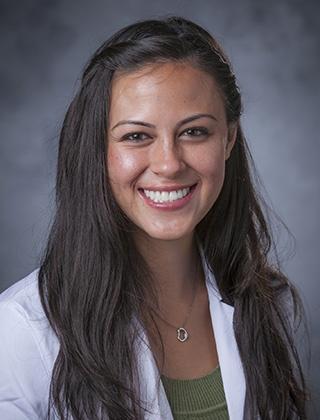Practicing slow medicine
It is a typical clinic day at Duke Family Medicine Center. Sitting across from a patient in clinic, my mind jumps between differential diagnoses, charting, placing orders, an unanswered page in my coat pocket, the emotional visit that came moments before, and the patient waiting for me in the next room. As my last patient walks out the door, I feel my mind settle. I realize for the first time that I did not eat or drink anything today, much less take a bathroom break. I feel the pressure of a full bladder, the dryness in my throat, and I’m suddenly starving.
Next, I am scheduled to co-lead a group prenatal class. Although I am about to see the same number of patients as I would in a half-day of clinic, the whirlwind of clinic has come to a close. I approach our clinic classroom and find my prenatal care team preparing the room for group visits. Somehow, the ritualistic preparation re-energizes me. The lights are dimmed. Soft music plays in the background. Classroom chairs are organized into a small circle. Fruit and water are on the table.
 Our patients trickle in for their group prenatal visit. It has become second nature for each patient to check their own blood pressure, heart rate, and weights. The rooming process typically conducted individually by nurses is facilitated by one nurse in a group setting. As patients arrive and finish recording vital signs, we direct them behind a screen for a belly check where we listen to the baby’s heart beat and check growth with a measuring tape. Moms, dads, sisters, friends, and partners are welcome and often accompany their loved ones. While each patient receives her individual evaluation, there is time for everyone to eat, mingle, and reconnect.
Our patients trickle in for their group prenatal visit. It has become second nature for each patient to check their own blood pressure, heart rate, and weights. The rooming process typically conducted individually by nurses is facilitated by one nurse in a group setting. As patients arrive and finish recording vital signs, we direct them behind a screen for a belly check where we listen to the baby’s heart beat and check growth with a measuring tape. Moms, dads, sisters, friends, and partners are welcome and often accompany their loved ones. While each patient receives her individual evaluation, there is time for everyone to eat, mingle, and reconnect.
A chime rings to signal the start of the group session. Subconsciously, it is a signal for me to become maximally present. It has become a signal for me to leave behind the telephone calls, phone messages, and charts that wait for me when the chime rings again. It has become an opportunity for me to practice presence in medicine -- to listen more, to be more patient, and to get to know my patients within the larger context of their lives, families, and communities.
CenteringPregnancy® is founded on principles of horizontal learning and community support. Women in the same stage of pregnancy meet to discuss ailments of pregnancy, labor experiences, parenting challenges, and community resources. While I can give a whole lecture on the medical benefits of breastfeeding, I may not have as much insight as my patients about what type of breast pump to buy or the practical difficulties of breastfeeding for working women. One of the greatest benefits of the Centering model is instilling women with the confidence to ask questions and teach each other.
I am grateful for the opportunity to practice more thoughtful patient education, one of the most effective tools we have in medicine. In the fast-paced world of medicine, it has been a breath of fresh air to connect, grow, laugh, and learn together with a group of women going through this critical period of life.
Anna Afonso is a second-year resident with the Duke Family Medicine Residency Program. Email anna.afonso@duke.edu with questions.
Editor’s note: Duke Family Medicine residents guest blog every month. Blogs represent the opinion of the author, not the Duke Family Medicine Residency Program, the Department of Community and Family Medicine or Duke University.
